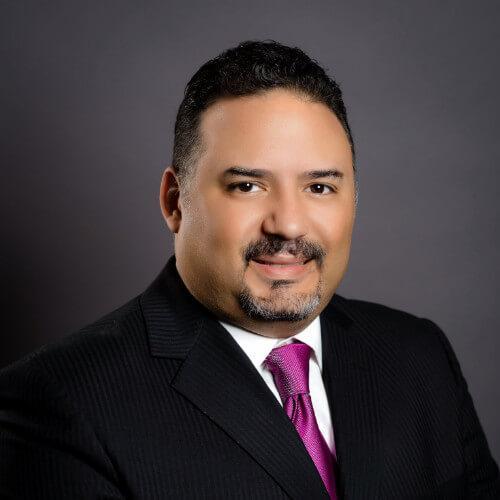Many different industries that depend on content management systems to efficiently handle their digital
content often hire PHP CMS developers. The following are some typical industries in which PHP CMS developers
work:
Product listings, descriptions, prices, and promotional content are managed by
online retailers using content management systems (CMS). E-commerce platform development and
maintenance require PHP CMS developers.
CMS platforms are frequently used by tech organizations for their blogs, websites,
and customer service portals. It takes PHP CMS developers to modify these systems to meet particular
requirements.
To manage financial data, provide market insights, and offer client services,
financial firms employ CMS platforms.
To handle patient records, medical records, and health-related material, hospitals,
clinics, and healthcare organizations employ CMS platforms.
Course materials, student data, and academic resources are frequently managed by
educational institutions—including schools, colleges, and universities—through the usage of CMS
platforms.
Bookings, travel packages, and client reviews are managed by travel agencies,
hotels, and hospitality companies using content management systems (CMS).
To handle articles, videos, photos, and other multimedia content, businesses in the
media, publishing, and broadcasting sectors heavily rely on CMS platforms.
Non-profit Organizations:
To handle donations, events, campaigns, and educational materials, non-profits and
NGOs employ content management systems (CMS).
CMS platforms are used by real estate firms to handle client communications,
virtual tours, and property listings.
Related Services
Exclusive list of Interview Questions asked when you Hire PHP CMS Developers in India
PHP Fundamentals:
What is the difference between include() and require() in PHP?
include() includes and evaluates a specified file; errors are non-fatal.
require() includes and evaluates a specified file; errors are fatal.
Explain the difference between == and === operators in PHP.
== checks equality of value.
=== checks equality of value and type.
How does PHP handle data types?
PHP is loosely typed, meaning variables do not need to be declared with a specific data type before use. Types
are dynamically assigned based on the value assigned.
CMS Specific Questions:
What CMS platforms have you worked with? Describe your experience with them.
Example answer: "I have extensive experience with WordPress, Joomla, and Drupal. I've built custom themes and
plugins, and I'm familiar with their respective APIs and best practices."
Can you explain the structure of a typical CMS-driven website?
Example answer: "A CMS-driven website usually consists of templates, which define the layout, and content stored
in a database. Users interact through an admin interface to manage content, and the CMS handles rendering based
on templates."
How do you handle security in PHP-based CMS development?
Example answer: "I follow best practices such as validating and sanitizing input, using prepared statements for
database queries to prevent SQL injection, and regularly updating CMS core, themes, and plugins to patch
security vulnerabilities."
Development Process and Tools:
Describe your experience with version control systems (e.g., Git) and how you use them in your workflow.
Example answer: "I use Git for version control, branching, and collaboration. I commit regularly, write clear
commit messages, and use branches for feature development and bug fixes."
How do you optimize PHP CMS performance?
Example answer: "I optimize by caching queries and rendered pages, minimizing database calls, optimizing images
and assets, and leveraging CDN for content delivery."
Problem Solving and Troubleshooting:
Have you encountered scalability issues with CMS-driven websites? How did you address them?
Example answer: "Yes, with WordPress sites experiencing high traffic. I optimized queries, implemented caching
with plugins like W3 Total Cache, and utilized a content delivery network (CDN) for static assets."
How do you handle plugin conflicts in CMS environments?
Example answer: "I isolate conflicts by deactivating plugins one by one, checking logs for errors, and testing
compatibility with different versions. I prefer plugins with strong community support and regular updates."
Behavioral Questions:
Can you describe a challenging project you worked on and how you overcame obstacles?
Example answer: "I worked on a project where we had to migrate a large Joomla site to WordPress. We faced data
mapping challenges, but by creating custom scripts and meticulously testing, we completed the migration
successfully."
How do you stay updated with the latest trends and technologies in PHP and CMS development?
Example answer: "I regularly follow PHP blogs, attend webinars, participate in forums like Stack Overflow, and
contribute to open-source projects. I also experiment with new CMS releases in sandbox environments."
Frequently Asked Questions
What is a PHP CMS developer?
A PHP CMS developer specializes in creating and maintaining Content Management Systems (CMS) using PHP, a popular
server-side scripting language.
What skills should a PHP CMS developer possess?
Key skills include proficiency in PHP programming, experience with popular CMS platforms (like WordPress, Joomla,
Drupal), knowledge of HTML, CSS, JavaScript, and database management systems (e.g., MySQL).
What experience should I look for in a PHP CMS developer?
Ideally, look for developers with demonstrable experience in building and customizing CMS solutions, integrating
plugins and themes, optimizing performance, and ensuring security best practices.
How do I assess a PHP CMS developer's proficiency?
Review their portfolio and past projects, inquire about their approach to CMS development, ask about their
knowledge of PHP frameworks (if relevant), and consider technical assessments or coding tests.
What are the typical responsibilities of a PHP CMS developer?
Responsibilities may include developing CMS-based websites, customizing themes and plugins, troubleshooting
issues, optimizing performance, ensuring site security, and collaborating with designers and content creators.
What are the advantages of hiring a dedicated PHP CMS developer?
Hiring a dedicated developer ensures focused expertise on CMS development tasks, faster turnaround times for
projects, ongoing support and maintenance, and the ability to scale resources based on project needs.
How can a PHP CMS developer help with SEO?
A skilled developer can optimize the CMS setup for SEO by ensuring clean URL structures, fast page load times,
mobile responsiveness, integration of SEO plugins/tools, and adherence to SEO best practices.
What security measures should PHP CMS developers implement?
Developers should follow secure coding practices, keep CMS core, plugins, and themes updated, implement HTTPS,
validate input data, use parameterized queries to prevent SQL injection, and employ measures to guard against
cross-site scripting (XSS) attacks.
How do PHP CMS developers handle scalability?
They design scalable architectures, use caching mechanisms, optimize database queries, and ensure efficient use
of server resources to handle increased traffic and content volume.
What ongoing support can I expect from a PHP CMS developer?
Expect ongoing maintenance, updates, bug fixes, performance monitoring, security audits, and support for new
feature integrations as CMS and business needs evolve.




































